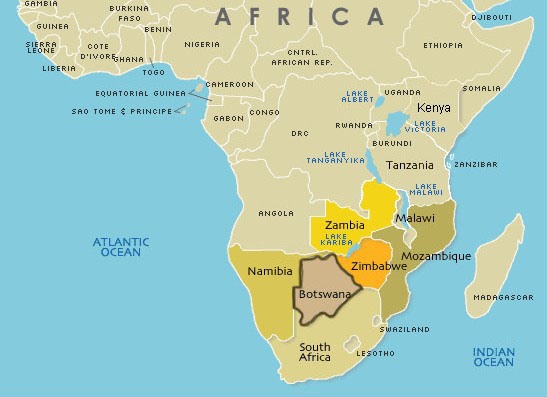As Botswana prepared for its national elections, the political landscape in the capital, Gaborone, was marked predominantly by the colors of the ruling Botswana Democratic Party (BDP), which has maintained power since the country’s independence in 1966. On the evening before the vote, the BDP held a final rally that drew over 300 supporters who fervently rallied around President Mokgweetsi Masisi. Notable among the attendees was Queen Mosiane, who expressed her loyalty to the BDP due to its longstanding support for citizens, particularly in areas of education and healthcare. Masisi, in his address, sought to consolidate support, urging voters to “polish” the previous election’s success in Gaborone, where the party had previously secured a clean sweep.
While the BDP showcased its political strength, the opposition, represented mainly by the Umbrella for Democratic Change (UDC), was visibly less prominent in Gaborone. This election cycle had been marked by fragmentation within the UDC, as key partners decided to run separate presidential candidates, leading to skepticism about their chances against the well-established BDP. Many citizens expressed a yearning for change, highlighting frustration with the long-standing leadership that has been in place since independence. Young voices in the community, like Ookeditse Letshwenyo, underscored feelings of disillusionment, arguing that the opposition’s divisions would impede any hope of unseating the BDP.
The ruling BDP’s reign has not gone unchallenged; criticism has mounted in light of economic struggles tied to Botswana’s reliance on diamond exports. The country is projected to experience a significant slowdown in economic growth, which is predicted to fall to just one percent in 2024 from 2.7 percent the previous year. Unemployment figures are particularly dire, with national unemployment at around 27 percent and youth unemployment nearing 38 percent. These economic challenges have spurred voters, especially the youth who feel marginalized, to contemplate change. For instance, 22-year-old waitress Sharon Setshwantsho emphasized the dire need for job creation, lamenting that many young educated individuals are left jobless despite having qualifications.
Yet, the lead-up to the elections revealed a significant disconnect for many young voters who felt the campaigns had failed to address their concerns adequately. Mpho Keorapetse, a 21-year-old finance student, articulated this sentiment, asserting a lack of compelling reasons to get involved in the electoral process. In contrast, there are those within the opposition, such as pastor Masego Moleje, who believe that the UDC could offer a viable alternative if led by Duma Boko, highlighting a desire for jobs and a more compassionate approach to governance.
The political dynamics further complicated by former President Ian Khama’s involvement, as he geared up for the election to re-establish his influence. After leaving the BDP in a fallout with Masisi, Khama switched to support the Botswana Patriotic Front (BPF). His vocal opposition and return to the public eye after a period of exile injected some intrigue into the election, though analysts suggest his overall impact may be limited. Despite his efforts, many citizens seem to wish for a more cooperative political environment. Young voters like Bokomoso Fetlhalefile expressed a desire for Khama to step back from political meddling altogether.
Botswana’s voting system employs a first-past-the-post mechanism for parties competing in national and constituency elections. This system means a party can win a majority of seats in parliament without achieving an outright majority of the overall vote. As the country braced for election day, the prevailing narrative indicated that while the BDP remained a formidable force with historical advantages, a wave of public sentiment for change could lead to crucial shifts in local dynamics. Producers of the political landscape, such as Masisi’s BDP, were urged to remain responsive to the electorate’s needs as the competition intensified, further enriching Botswana’s democratic legacy amid its ongoing challenges.














